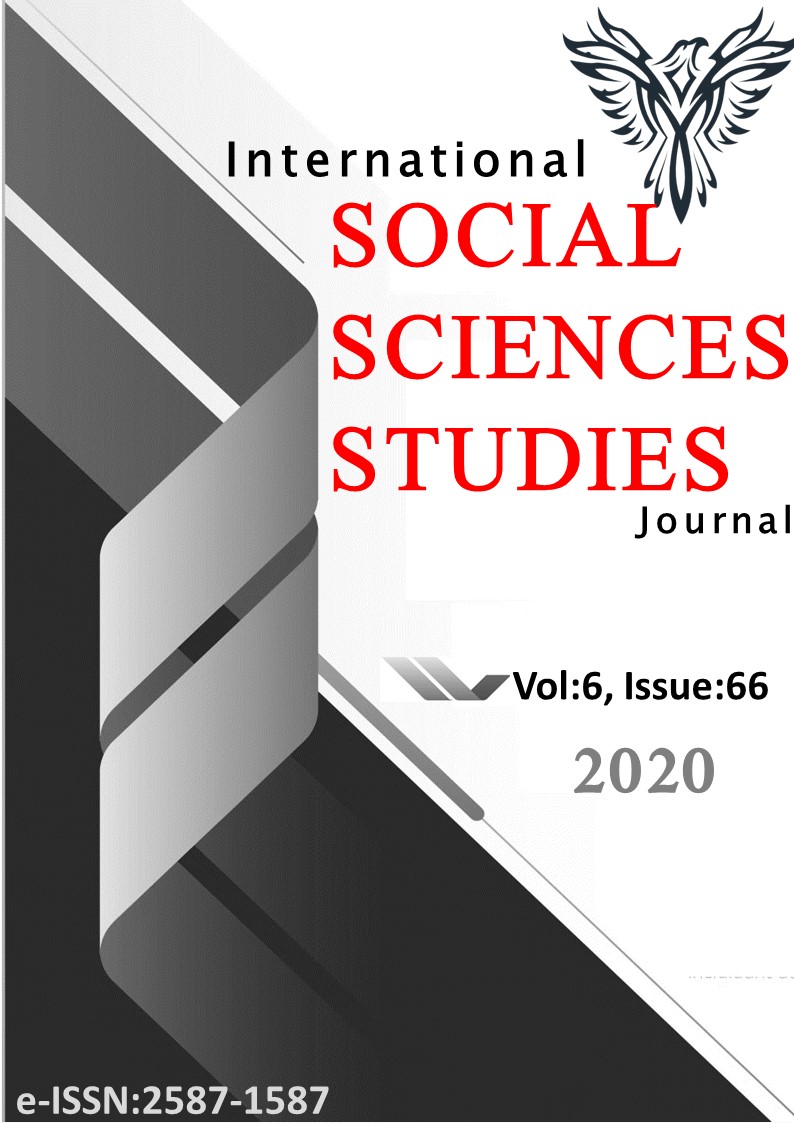MARTIN MCDONAGH’NIN THE LIEUTENANT OF INISHMORE ADLI OYUNUNDA İRLANDA MİLLİYETÇİLİĞİ VE HİCİV ÜZERİNE BİÇEMBİLİMSEL BİR İNCELEME
Author :
Abstract
Martin McDonagh’nın, terörün ve şiddetin anlamsızlığına dikkat çeken kara komedi türündeki The Lieutenant of Inishmore (2001) adlı oyununda, İrlanda’da 20. yüzyılın sonuna gelindiğinde özellikle Kuzey İrlanda’da yaşanan şiddetli çatışmaların da etkisiyle İrlandalılık ve milliyetçilik gibi kavramlara verilen değerin ne derece değiştiğini görmek mümkündür. Nitekim birçok İrlandalı oyun yazarının aksine, bağımsızlık, milliyetçilik, dil, din, kadın ve aile gibi tabulaşmış konuları idealleştirmek yerine eleştirel bir biçimde ele alan McDonagh’nın, şiddet eğilimi, cinayet ve işkence gibi konuları komedi unsurları ile birlikte sahneye taşıdığı oyunun sonunda, seyircilerde oldukça rahatsız edici de olsa bir farkındalık oluşturmayı hedeflediği söylenebilir. 90’larda İngiliz tiyatrosu ile özdeşleşen yüzevurumcu tiyatro geleneğini de takip eden McDonagh, tüm dünyada gittikçe yaygınlaşan terör ve şiddet sorununa dikkat çekerek seyircilere adeta bu tür olaylara verdikleri tepkileri ve trajik meseleleri seyrederken neden kahkahaya boğulduklarını sorgulatmayı amaçlamaktadır. Eleştirilerini kaleme alırken dili ustalıkla kullanan McDonagh’nın bu oyunu biçembilimsel bir çerçevede incelendiğinde, yazarın İrlanda milliyetçiliğini ne şekilde ele aldığı, İrlandalıların hangi yönlerini eleştirdiği, huzursuzluk ortamını yaratan sorunların altında nelerin yattığını ve asıl amacından sapmış sözde milliyetçi terör örgütlerini nasıl hicvettiği kolaylıkla görülebilir.
Keywords
Abstract
Martin McDonagh's black comedy The Lieutenant of Inishmore (2001), which draws attention to the meaninglessness of terror and violence, shows how much the value given to concepts such as Irishness and nationalism has changed in Ireland, especially with the impact of the violent conflicts in Northern Ireland, by the end of the twentieth century. Indeed, unlike many Irish playwrights, McDonagh critically deals with tabooed issues such as independence, nationalism, language, religion, women and family instead of idealizing them. He brings the issues such as propensity for violence, murder and torture to the stage together with comic elements, and it could be said that he aims to raise awareness in the audience at the end of the play, albeit quite disturbingly. Following the tradition of in-yer-face theatre which was identified with the English theatre of the 90s, McDonagh draws attention to the growing problem of terror and violence all over the world, and the play aims to make the audience question their reactions to such events and why they are laughing while watching tragic issues. Examining the play in a stylistic framework makes it possible to see how McDonagh handles Irish nationalism, which aspects of the Irish he criticizes, and how he satirizes the underlying causes of the unrest and the so-called nationalist terrorist organizations which deviated from their original purpose.





